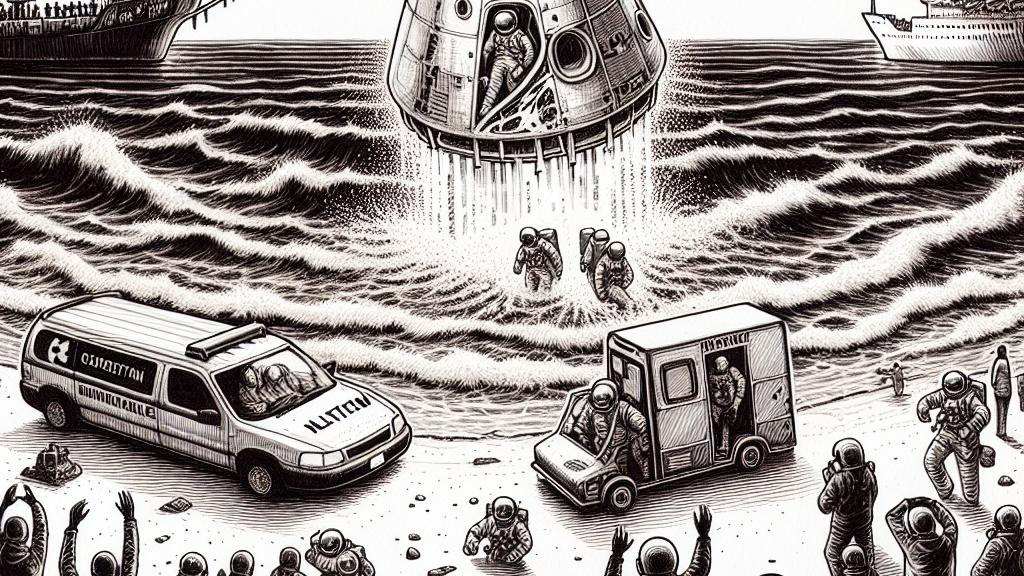Health Concerns for NASA Astronauts After Long Mission
Overview
- Three NASA astronauts encountered unexpected health issues following their extended eight-month mission in space.
- The identity of the astronaut who fell ill remains a closely guarded secret, sparking curiosity and concern.
- As space exploration intensifies, understanding the health impacts on astronauts becomes critical.

A Thrilling Yet Troubling Return
On October 25, 2024, a major milestone was achieved when three NASA astronauts returned from a challenging, nearly eight-month stay aboard the International Space Station. Their arrival in the Gulf of Mexico was celebrated, but that celebration quickly turned into anxiety as they were urgently taken to a hospital in Pensacola, Florida. One member of the crew encountered a medical issue that necessitated a night in the hospital, though NASA has chosen not to disclose who it was. This decision to keep the astronaut's identity private raises important questions about the health risks faced during long missions and highlights the unseen challenges of space travel. As humanity ventures further into the cosmos, this incident emphasizes the crucial need for effective health monitoring and immediate medical response to ensure the well-being of astronauts.
Unpacking the Complex Health Risks of Spaceflight
The complexities of human health in space were vividly illustrated in a recent press conference where veteran astronaut Michael Barratt spoke candidly about their experiences. He noted, "Spaceflight is an adventure filled with unanticipated surprises, and this mission was no exception." He shared personal anecdotes describing the difficulty of adapting to gravity after months in microgravity, where even basic actions like sitting or walking felt foreign. These reflections underscore a vital point: the human body responds in unpredictable ways to the harsh conditions of space, and each astronaut's experience can differ widely. For example, one astronaut reported that they didn't utilize the treadmill in space, leading to unique physical adjustments upon return. Such stories remind us of the resilience required to navigate the physical and psychological hurdles of being in space for extended periods.
NASA's Commitment to Advancing Astronaut Health Research
In light of these challenges, NASA is making significant strides in health research through the Translational Research Institute for Space Health (TRISH). This initiative is dedicated to addressing the myriad health risks astronauts face during their missions, ranging from radiation exposure to psychological stressors. For instance, researchers are developing cutting-edge technologies to monitor physiological conditions that can impact astronaut health. Furthermore, they are exploring how microgravity affects bone density and muscle mass over time, information crucial for preparing for longer missions to Mars or beyond. This proactive approach is not only essential for the future of space exploration but also carries the potential for breakthroughs that could benefit medicine back on Earth. Ultimately, ensuring astronauts' health and safety is not just a matter of their individual success but a foundational element of humanity's quest to explore the unknown.

Loading...